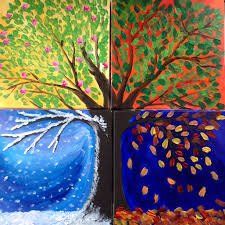More Kwanzaa Living Around the Year
- By kwende ukaidi
- •
- 09 Nov, 2019
- •
Celebration of First Fruits

The Afrikan is superlatively blessed
by the Creator Supreme to be holistic in beingness and throughout life’s
journeying in a magnificent way that in turn makes the eternal Afrikan life
continuum magnificent. The harmonious and complimentary living for ascension energised
in the Afrikan soul from one observance to the next throughout the annual cycle
is a naturally resplendent part of Afrikan wholesomeness. As well as the divine
manifestations of Ausar, Auset and Heru in the annual cycles of spiritual and
cultural observance, there are other aspects of Afrikan life that are shared
with the wonderful observance of Kwanzaa that come to the fore through the other
great observances of the annual cycle. Some of which are shared here.
The observance of Ujaama Kiburi Siku (Afrikan Economic Pride Day) - in part - shares its name with the value of Ujaama of the Nguzo Saba. This wonderful period of time is truly golden in its energising of Afrikan economic ascension. Real Afrikan economy is embedded within, expressed, developed and maintained from Afrikan spiritual and cultural life. In other words, the living of Afrikan life is essential for economy. Conversely, void of living their own spiritual and cultural fabric Afrikan souls are rendered economy-less. So much so that there can be examples of individuals making large financial gains within the acutely restrictive confines of an alien economy whilst they and their people remain poor. Indeed, financial literacy within an alien economy is for far too many souls (at best) a survival strategy of navigating hostile circumstance governed by others that mean them ill.
With the observance of Ujamaa Kiburi Siku and indeed the value of Ujamaa of Kwanzaa Afrikans can with spiritual and cultural earnest restore economic ascendancy as an essential of mission for Afrikan liberty and nationhood. Return to the wholesome living knowingness of real Afrikan economy is surely an imperative. This is a part of living Kwanzaa.
The observance of Kimungu Madhabahuni (Divine Shrine) highlights the significance and empowering special sacredness of the Afrikan shrine. Whether in the home or otherwise the Afrikan shrine is a powerful facet of Afrikan life. During the Kwanzaa celebration its profound symbols are brought together to form a Kwanzaa shrine. Elements of this shrine can remain in place throughout the year as a basis upon which the symbols of other observances are made prominent in shared space. This is a part of living Kwanzaa.
Kwanzaa has wonderfully powerful ritual in the lighting of the Mishumaa Saba (Seven Candles). So too do the other observances of the year have their own marvellous ritual practice. Whether Afrika Ukombozi Siku (Afrika Liberation Day), Yemanja Siku (Yemanja Day), Omowale Malcolm X Kukumbuko and so on – the Afrikan spirit is nourished at its deepest levels through ritual. The pouring of Tambiko (Libation) and the Utterance of the Tamshi la Tambiko (Libation Statement) is an essential of Kwanzaa and is ubiquitous throughout Afrikan life.
The language of Kwanzaa is Kiswahili with all of its empowering splendour in ease of use, accessibility, popularity, unifying qualities and so on. Indeed, the word Kwanzaa itself is derived from the Kiswahili phrase Matunda ya Kwanzaa meaning first fruits of the harvest. Within the Universal Royal Afrikan Nation Kiswahili is the official Afrikan language and the other observances throughout the annual cycle carry the magnificent empowerment of having Kiswahili identifiers and symbol names. Amongst much else, this enlivens the Afrikan spiritual and cultural life experience in one harmonious accord throughout the year and lifts the Afrikan from the bogus disjointed compartmentalims imposed by foreign enemies in their folly of divide and rule and fragmentation.
In Afrikan living throughout the year Kwanzaa continues to be. As such when the observance of Kwanzaa comes to fruition. The seven-day period becomes a natural celebration of all year round living for Afrikan ascendancy.
The wonderful observance of Kwanzaa takes place from the 26th of so-called December to the 1st of so-called January. It is seven-day period of Afrikan celebration and spiritual-cultural enrichment. Based upon the harvesting traditions of the Afrikan world this celebration of first fruits has at its core the Nguzo Saba (Seven Principles) together with an beautiful array of deeply meaningful symbols established elevate the Afrikan world community to its fullest flourishing.
Kwanzaa is one of the essential cultural observances of life within the Universal Royal Afrikan Nation. The Universal Royal Afrikan Nation (URAN) is an Afrikan-centred spiritual and cultural mission for ascendancy that embodies living spiritually and culturally rooted life. To find out more about URAN and its spiritual-cultural mission for liberty and nationhood click here. The exquisite URAN pendant can be obtained online by clicking here.
In his capacity as an Afrikan-centred spiritual cultural practitioner this author is available for further learning in this regard and also for the carrying out of ceremonies such as naming and name reclamation. For details please click here.
Afrikan World Studies programmes are an important forms of study in understanding the Afrikan experience. There are a range of subjects covered on these programmes including History, Creative Production, Psychology and Religion. To find out more about these learning programmes please click here. For the video promo for these learning programmes click here.
Also, in the approach to the important cultural observance of Kwanzaa, the text: From Pert-En-Min to Kwanzaa - A Kuumba (Creative) Restoration of Sacred First Fruits by this author is available to purchase online here. This publication provides important information on the Kwanzaa celebration. You can also visit the institution of Yemanja to pick up a copy.
At nominal cost, also consider acquisition of an a4 laminate poster of articulations by this author when visiting the Yemanja institution to enrol, consult, learn, gather or otherwise.
Also, visit www.u-ran.org for links to Afrikan liberation Love radio programme on Universal Royal Afrikan Radio online.